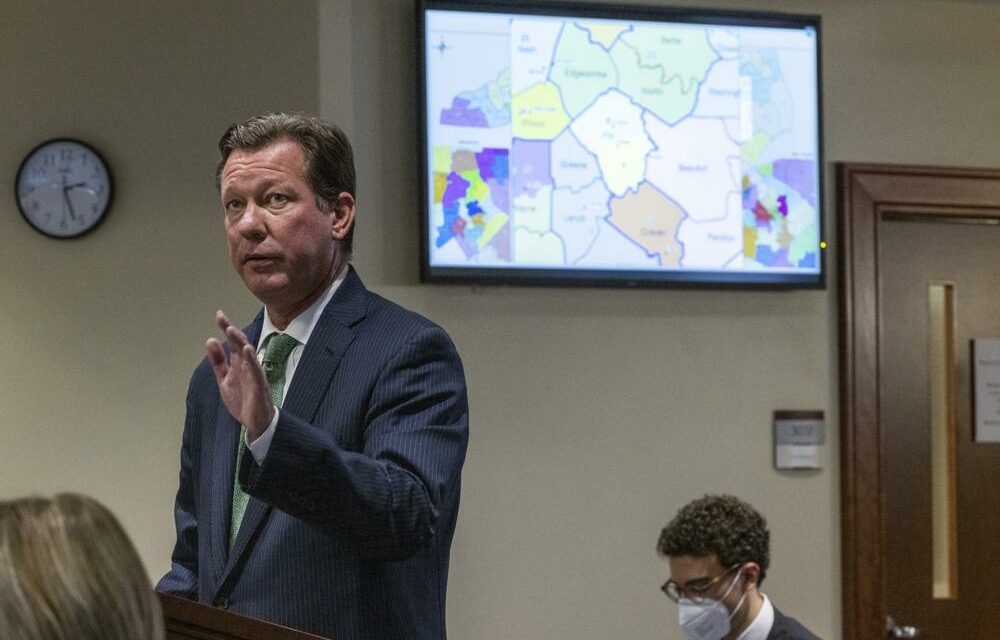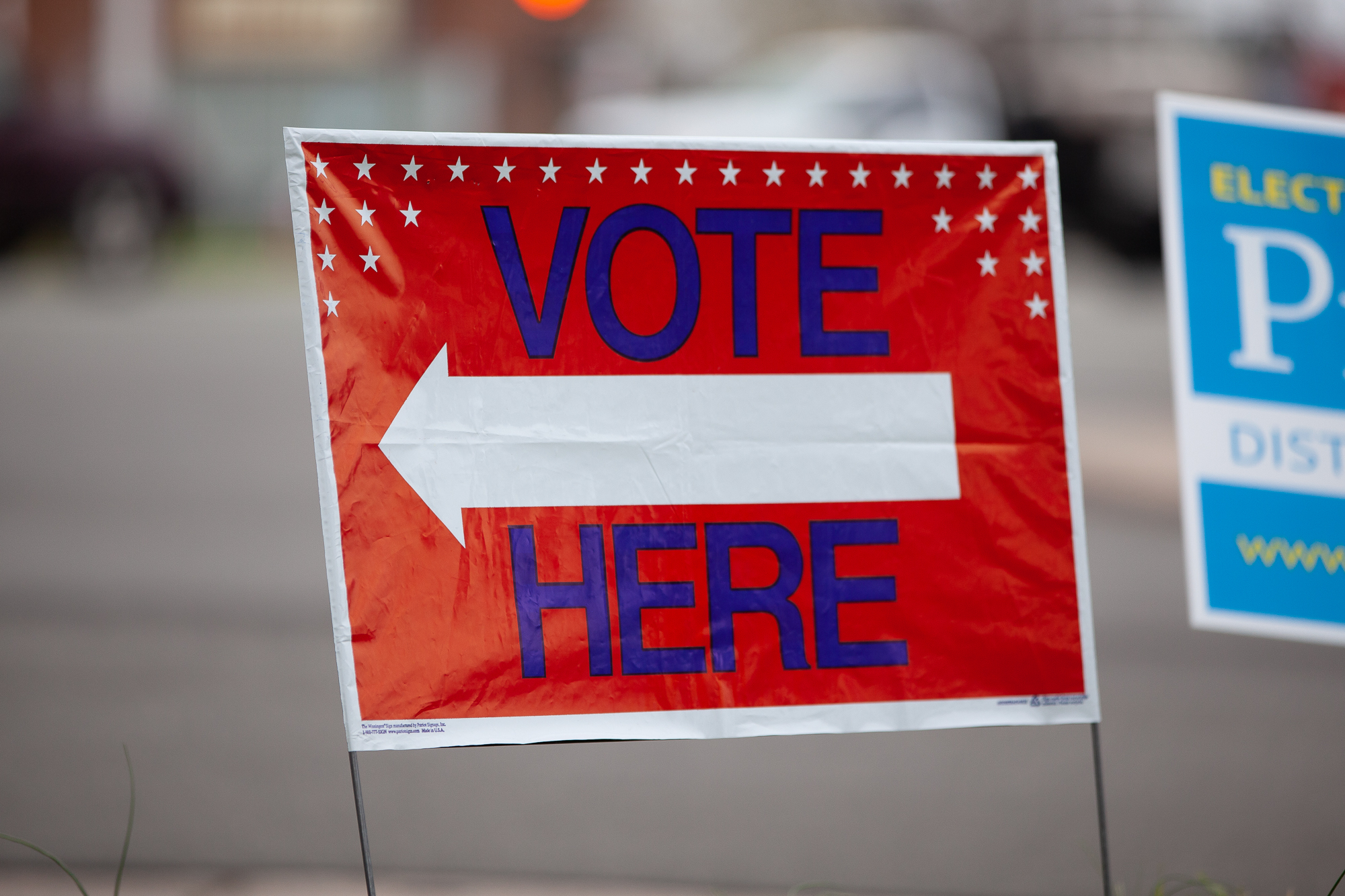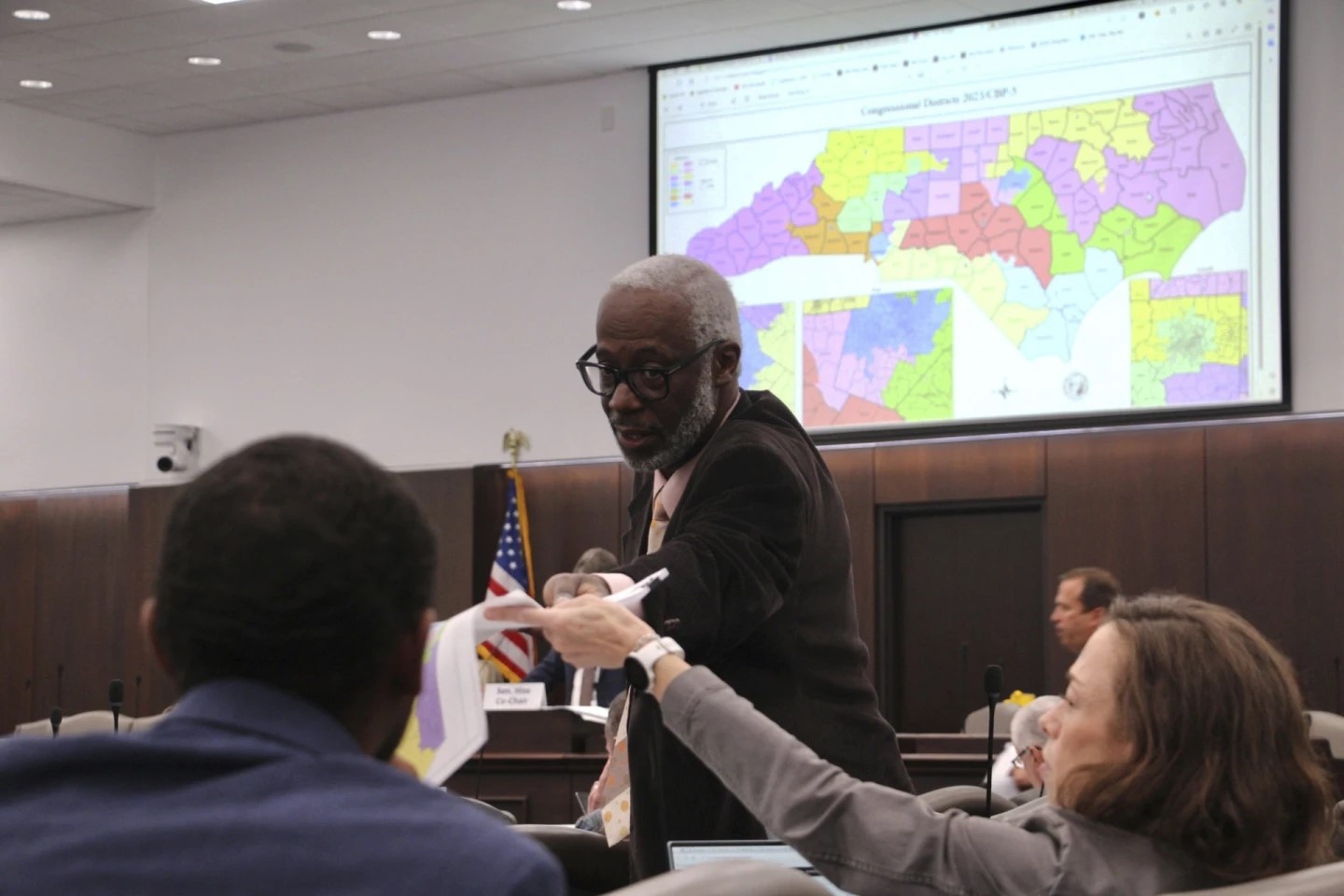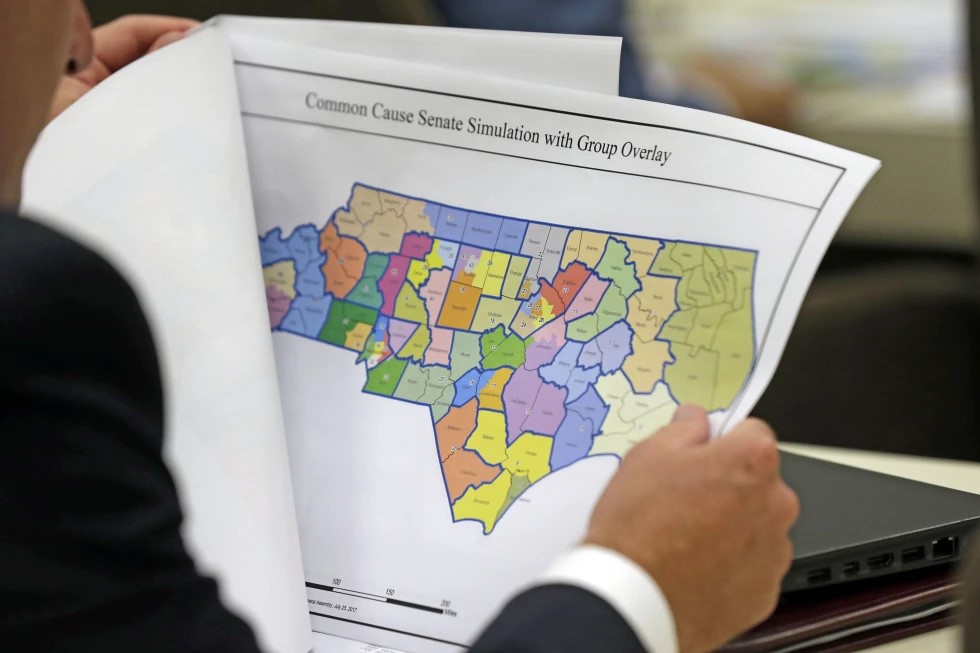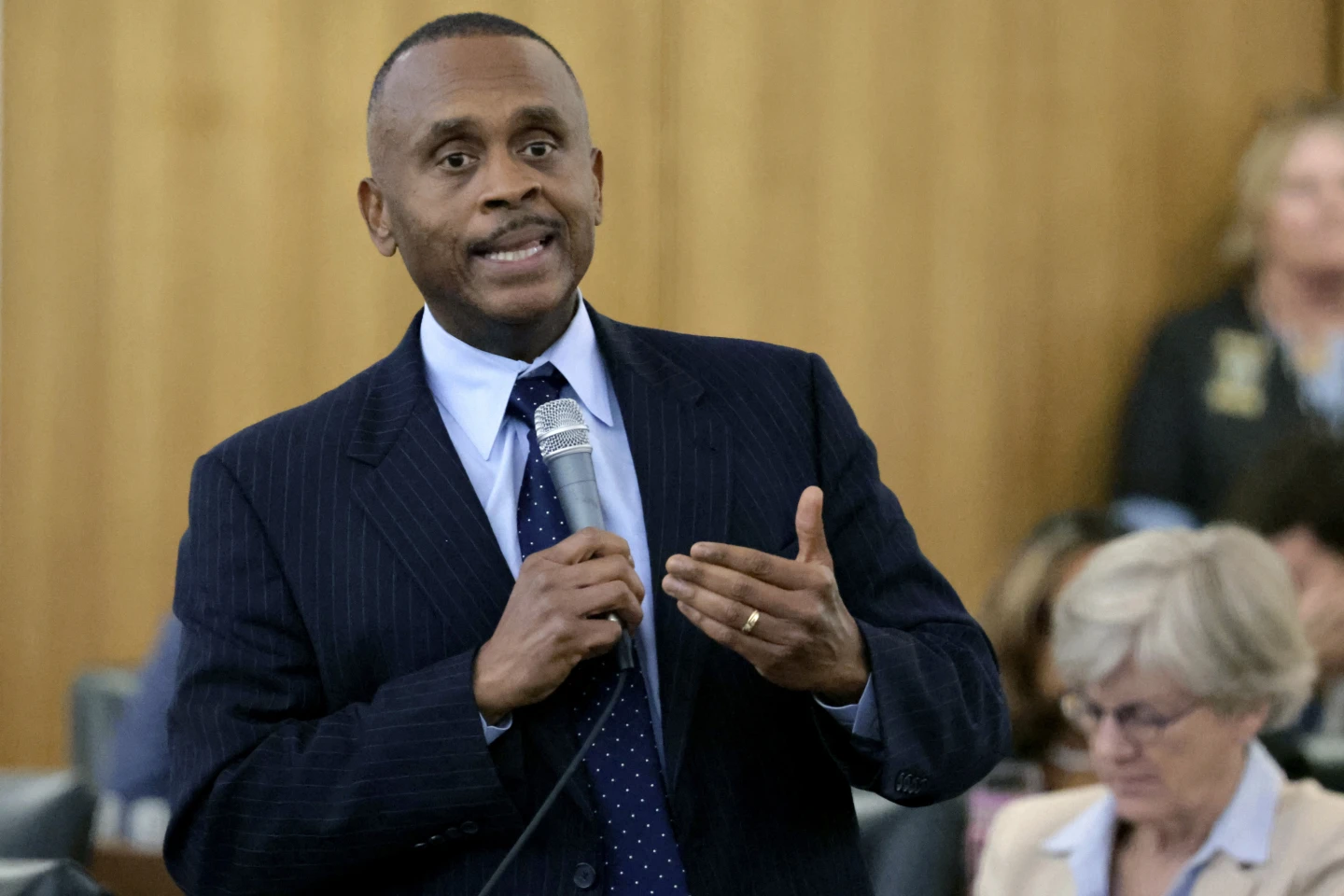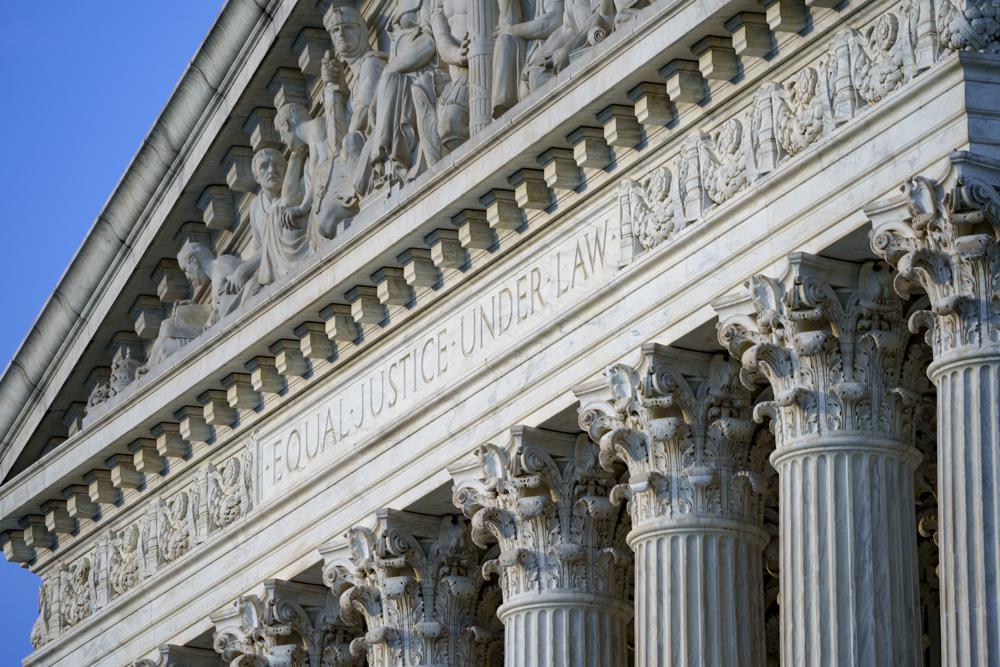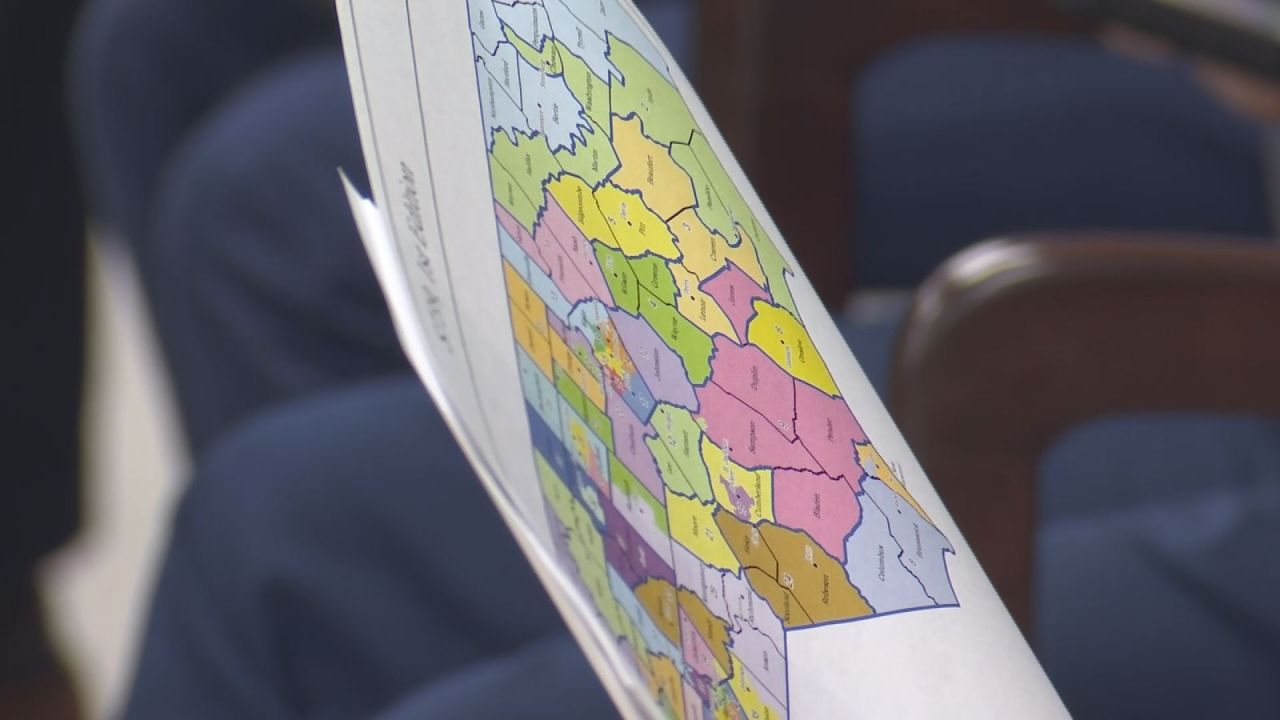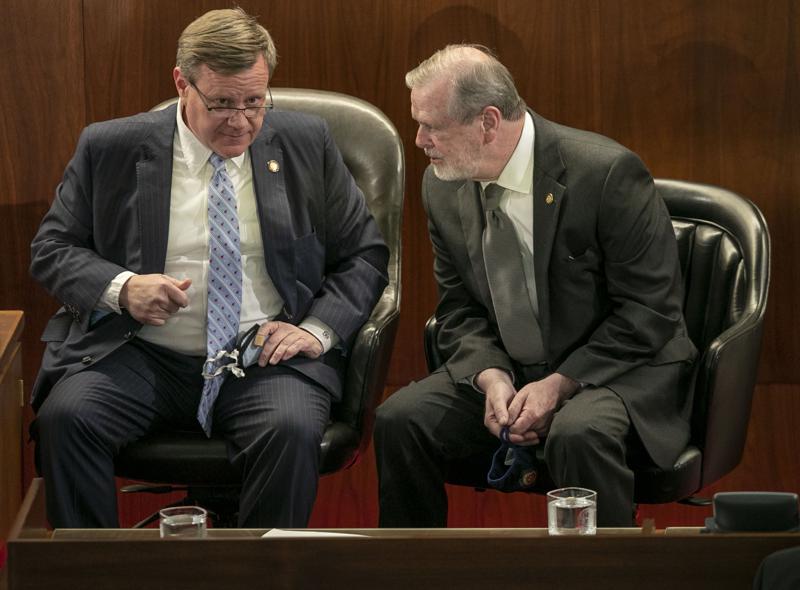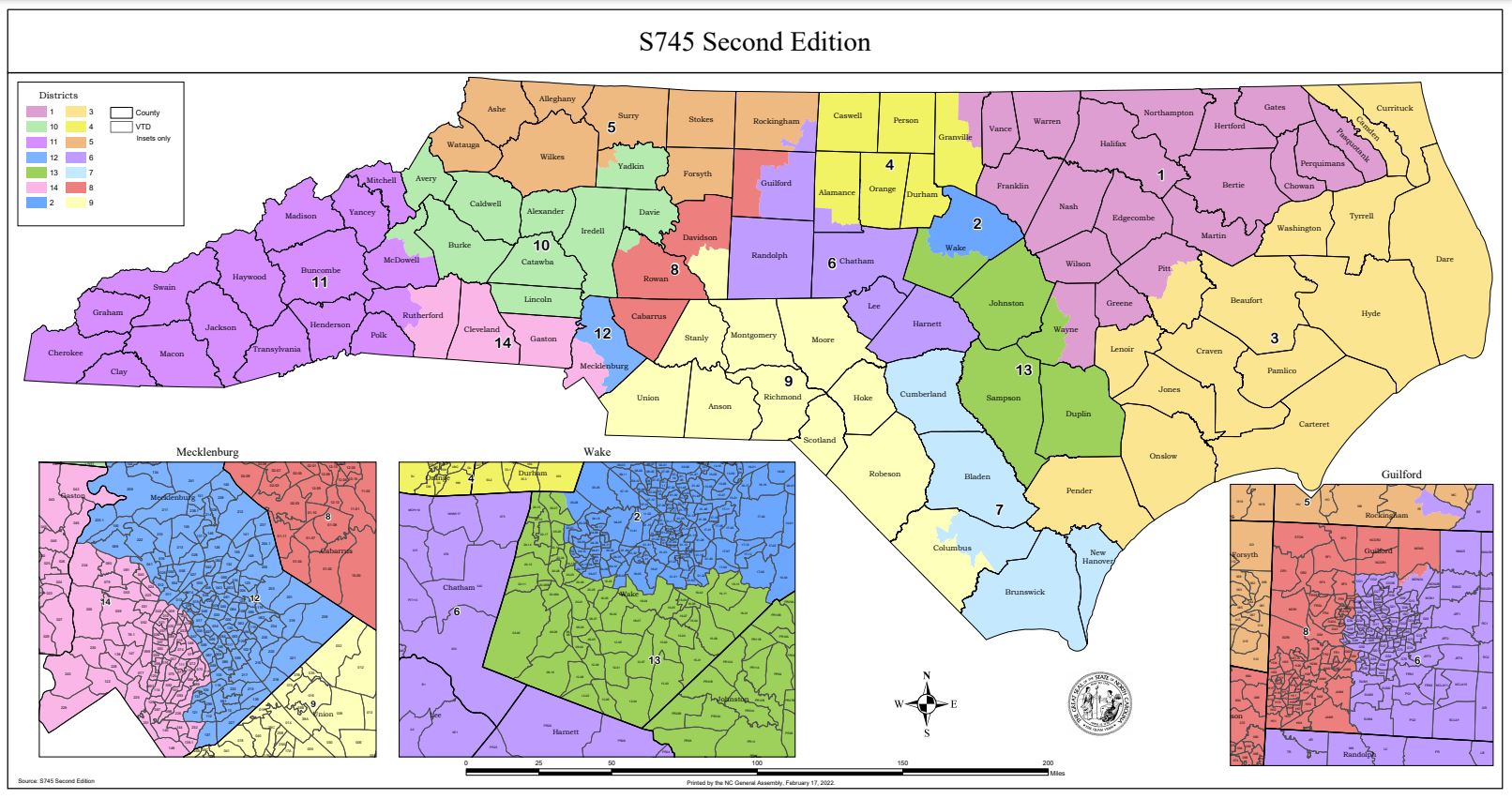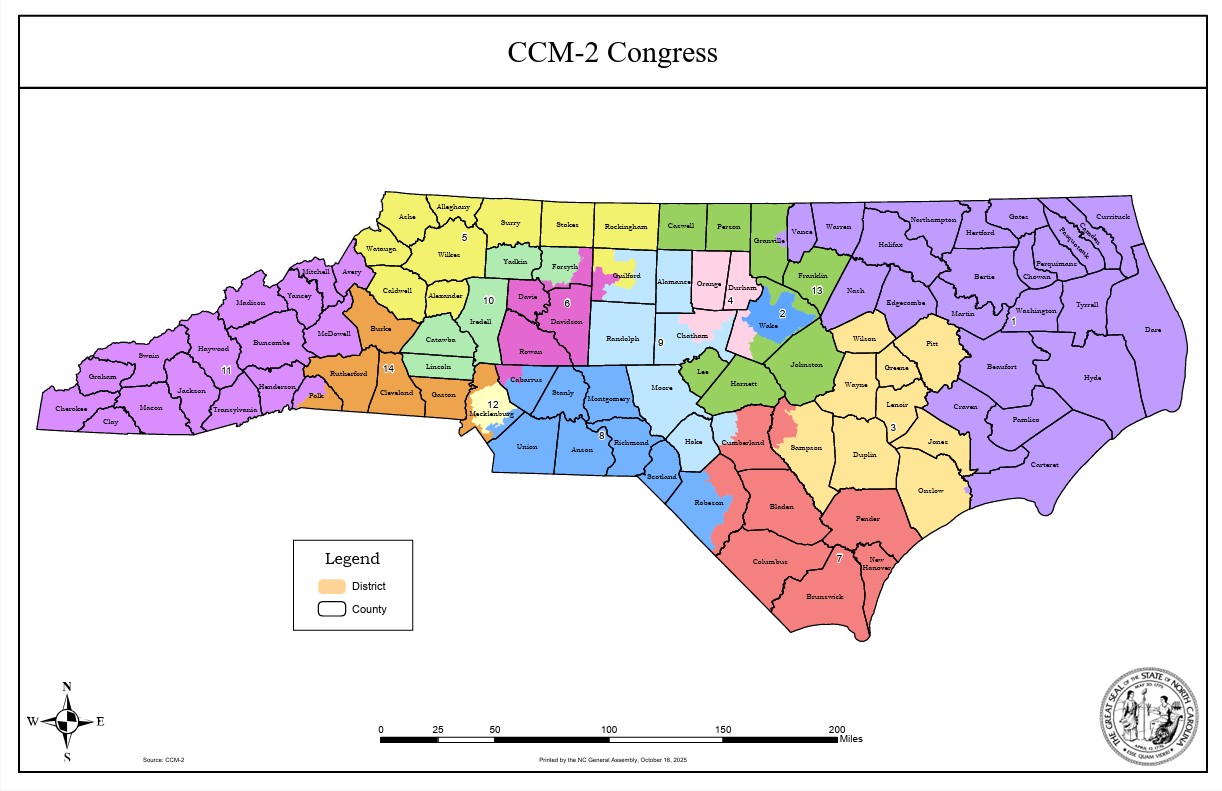Written by JONATHAN DREW
North Carolina’s Republican legislative leaders have asked the U.S. Supreme Court to curtail state courts’ powers to intervene in the drawing of congressional districts as part of an ongoing battle over electoral maps.
The renewed effort is not expected to alter the current election cycle after the justices ruled earlier this month to allow North Carolina to use maps approved by state courts in 2022. But four conservative members of the high court have signaled they are open to revisiting the scope of state courts’ ability to alter congressional maps in the future.
The new petition filed Thursday by North Carolina GOP legislators acknowledges that the maps for 2022 are set but says the larger issue should be decided before 2024 elections.
The filing argues that North Carolina’s Supreme Court overstepped its authority when it struck down a congressional map created by legislators and later allowed implementation of districts drawn by court-appointed experts. The filing says the U.S. Constitution grants state legislatures, not state courts, the ability to oversee federal elections and draw congressional maps.
“The U.S. Constitution is crystal clear: state legislatures are responsible for drawing congressional maps, not state court judges,” North Carolina House Speaker Tim Moore said in a statement.
However, voters and advocacy groups who fought the Republican leaders over the maps have countered that past U.S. Supreme Court rulings and federal law give state courts remedial power over redistricting and the ability to interpret state constitutions’ own rules for electoral maps.
Earlier this month, the high court issued separate rulings that allowed North Carolina and Pennsylvania to proceed with 2022 elections under court-ordered maps.
At the time, four conservative justices indicated that they think the court should consider, at a later date, how much power state courts have to intervene in congressional map drawing.
“The issue is almost certain to keep arising until the Court definitively resolves it,” Justice Brett Kavanaugh wrote on March 7. He said he would be in favor of considering the question in the court’s next term but didn’t want to interfere in this year’s electoral process.
North Carolina has gained an extra seat in the U.S. House because of a rising population. Republican majorities in the Legislature produced an initial plan most likely to result in 10 seats for Republicans and four for Democrats. After Democrats sued, arguing the map was unfairly tilted to Republicans, state courts ruled that the districts must be redrawn to meet standards of partisan fairness. The maps approved by the state courts give Democrats a good chance to win at least six seats.
Photo via Travis Long/The News & Observer.

